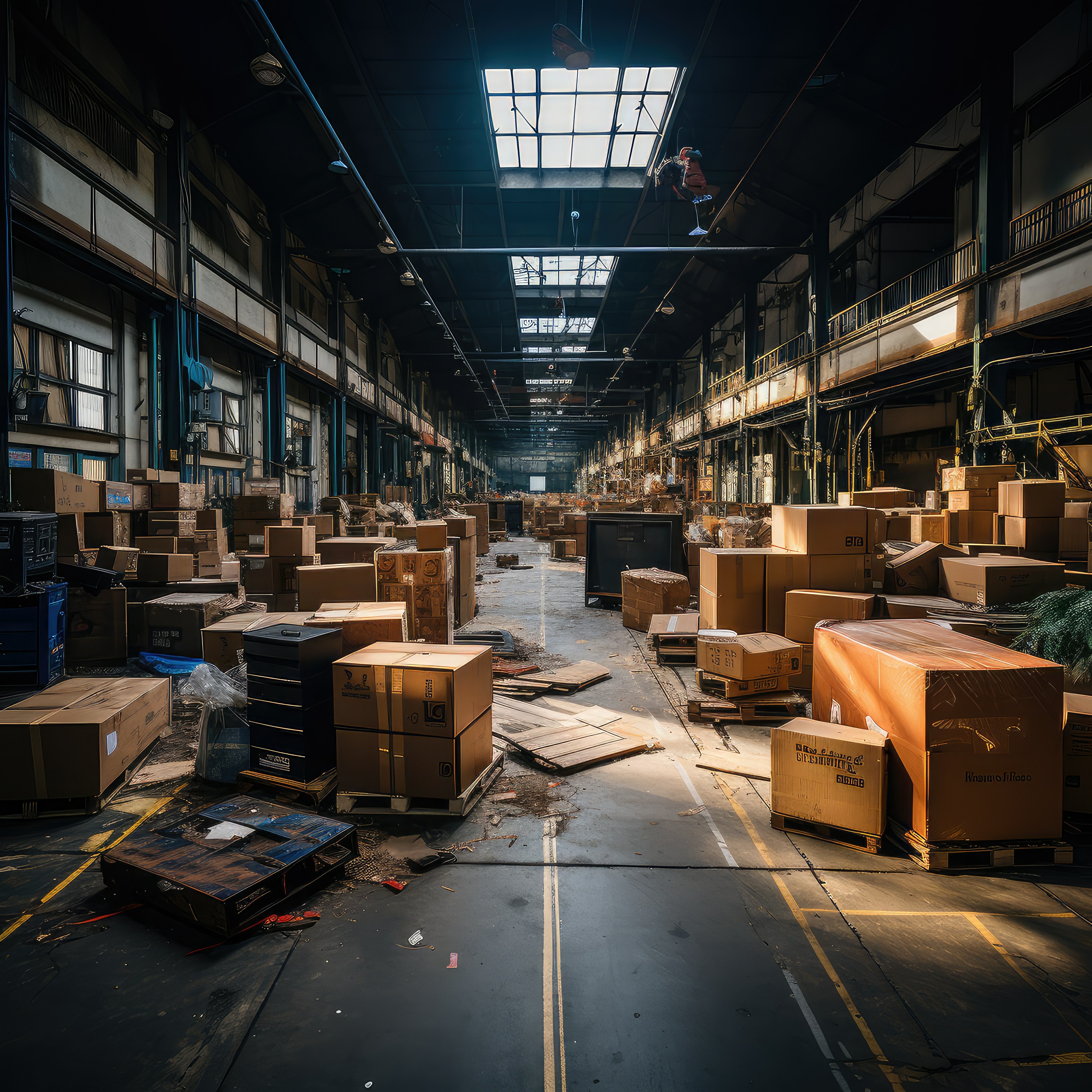As members of the Reverse Logistics Association, we are intimately aware of the intricate processes involved in managing the flow of goods and materials. Research by scientists at the Chalmers Institute of Technology in Gothenburg, Sweden, found that the average cotton t-shirt might release just over 2kg of carbon dioxide equivalent into the atmosphere, while a polyester dress could release the equivalent of 17kg of carbon dioxide. These staggering statistics underscore the pressing need for sustainable practices within the fashion industry and beyond. We must prioritise sustainable methods of handling the flow of goods and materials to mitigate environmental impact and ensure a healthier future for our planet.
Picture this: a remote coastline, far from the reach of bustling cities and industrial zones. Accessible only by boat or a rugged 4x4 drive, this pristine enclave whispers tales of untouched beauty and tranquillity. For many, it embodies the idyllic notion of paradise—a place where time stands still, and nature reigns supreme.
One such destination is the remote side of Crete, a haven that beckons travellers seeking solace in the embrace of nature. Here, amidst the rugged cliffs and azure waters, lies a delicate ecosystem teeming with life. For years, it remained untouched, a testament to the resilience of nature in the face of human intrusion.
Yet, as the saying goes, paradise is not immune to change. Over the years, this remote coastline has witnessed the subtle yet profound effects of human activity. What was once a pristine stretch of coastline adorned with delicate sandbars and crystal-clear waters has now undergone some transformation.
Returning after years, travellers are met with a sight that stirs mixed emotions. Where once stood untouched beauty, now rise signs of development, and where pristine waters once teemed with life, now lay less vibrant. The remote coastline once cherished has seen some changes.
This transformation serves as a poignant reminder of the fragility of our natural world and the irreversible impact of human actions. It underscores the importance of responsible stewardship and the need to strike a balance between progress and preservation. As members of the Reverse Logistics Association, we have a unique opportunity to lead by example. By integrating sustainable practices into our operations, we can minimise our environmental footprint and contribute to the preservation of delicate ecosystems like the remote coastlines of Crete.
From cutting down carbon emissions to advocating for the responsible disposal and recycling of goods, each step we take holds the power to create change.
In the ever-evolving landscape of e-commerce, managing returns efficiently has become a crucial aspect for retailers seeking to maintain customer satisfaction and operational excellence. However, with the rise of online shopping comes the challenge of handling returns sustainably. Recognising this challenge, revolutionary circular solutions are available to streamline returns management while prioritising sustainability. In today's ecommerce landscape, efficient global returns management is crucial for both retailers and consumers.

E-commerce returns pose significant challenges for retailers, ranging from logistical complexities to environmental concerns. Traditional returns processes often involve sending returned items back to the retailer's warehouse, leading to increased transportation emissions and the potential for waste. Additionally, retailers may struggle to find efficient ways to resell or dispose of returned products, resulting in lost revenue and environmental impact.
Innovative platforms offer a comprehensive solution to address the challenges of e-commerce returns. By integrating advanced technology and sustainable practices, optimising the returns process from start to finish. Here is how:
Simplifying the returns process for both retailers and consumers, providing a user-friendly interface for initiating returns and tracking their status. This seamless experience enhances customer satisfaction and reduces the administrative burden on retailers.
Instead of sending returned items straight back to the retailer's warehouse, evaluate each product's condition and determine the best course of action. High-quality items are redirected to resale platforms, donation centres, or recycling facilities, maximising their value, and minimising waste.
By finding new homes for returned products and minimising waste, helping retailers reduce their environmental footprint. This sustainable approach aligns with consumer expectations for eco-friendly shopping practices and enhances retailers' sustainability credentials.
Circular solutions not only benefit the environment but also offers financial advantages for retailers. By extending the lifecycle of returned products and minimising losses associated with global returns, retailers can optimise their inventory and maximise revenue potential.
Actively educating consumers about the importance of sustainable returns practices, empowering them to make environmentally conscious decisions. By raising awareness and promoting responsible consumption, fosters a culture of sustainability within the e-commerce ecosystem.
As e-commerce continues to thrive, the importance of sustainable returns management cannot be overstated. Ship Cycle's innovative circular solution represents a significant step forward in addressing this challenge, offering retailers a sustainable and cost-effective way to manage global returns while delivering a seamless experience for shoppers. By prioritising sustainability and efficiency, Ship Cycle is shaping the future of e-commerce returns and paving the way towards a more sustainable and responsible e-commerce industry. Join us in embracing a circular approach to returns management and navigating the future of e-commerce.
John O’Brien is the founder of Ship Cycle, bringing more than 20 years of experience in ecommerce and sustainability. With a passion for innovative solutions, John O’Brien is dedicated to revolutionising the global returns management landscape.